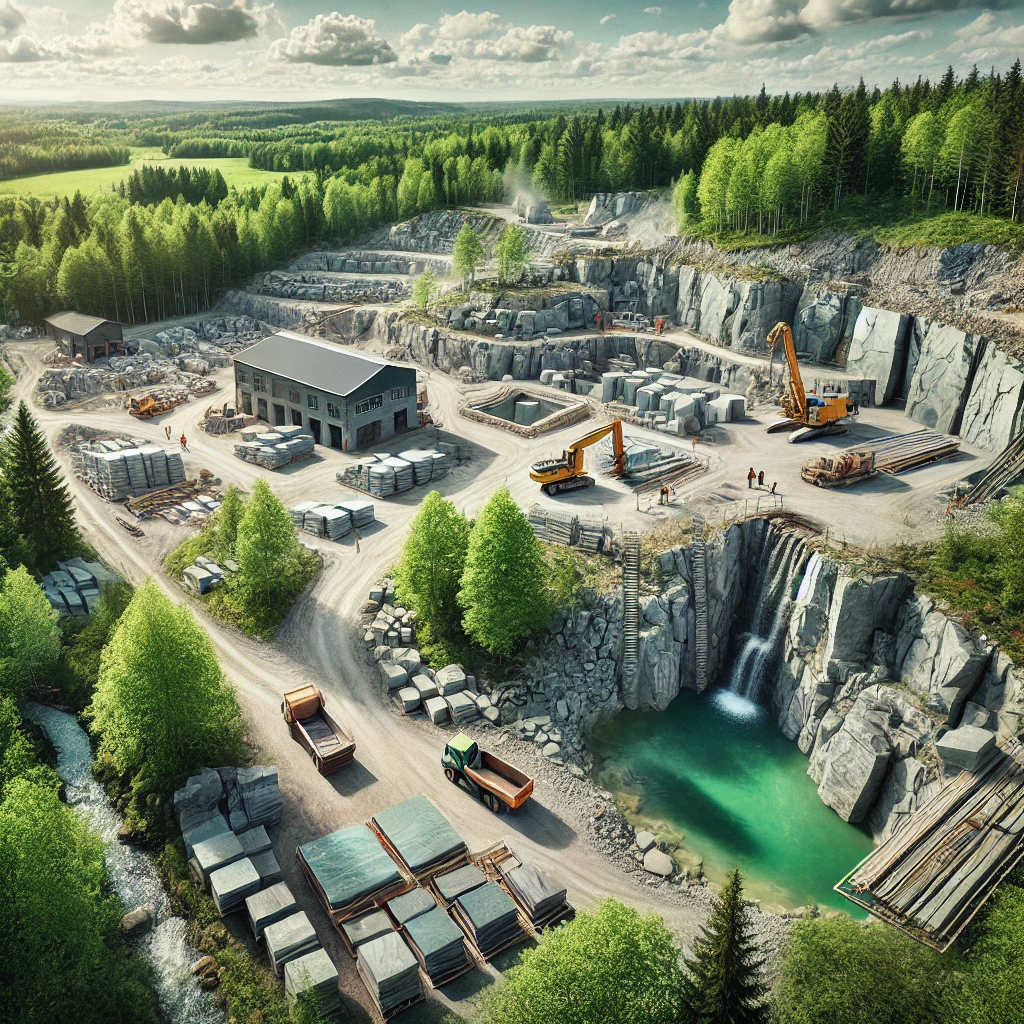When it comes to selecting the right material for countertops, flooring, or other architectural elements, the decision often comes down to a choice between natural stone and engineered stone. Both have their advantages, and the right choice depends on factors like aesthetics, budget, durability, and environmental considerations. In this blog, we’ll explore the differences between natural stone and engineered stone to help you determine which is the best fit for your project.
What is Natural Stone?
Natural stone is a material that is quarried directly from the earth. It includes well-known varieties such as marble, granite, limestone, and sandstone. Each piece of natural stone is unique, with its own natural color variations, veining, and texture. These materials are prized for their timeless beauty, durability, and ability to elevate the elegance of any space.
Pros of Natural Stone:
- Aesthetic Appeal: One of the most significant advantages of natural stone is its unmatched beauty. The unique patterns, textures, and veining in each slab make natural stone a one-of-a-kind material that brings elegance and sophistication to any design.
- Durability: Natural stone is known for its strength. Granite, for example, is incredibly durable and resistant to scratches and heat, making it an excellent option for kitchen countertops.
- Sustainability: Natural stone is an eco-friendly material that requires minimal processing. Its longevity also reduces the need for replacements, making it a sustainable choice in the long term.
- Increases Property Value: Using high-quality natural stone in a home or commercial property can boost its value, as it is often seen as a premium material.
Cons of Natural Stone:
- Porosity: Certain types of natural stone, such as marble and limestone, are porous and can stain if not sealed properly. Regular maintenance is required to keep the surface looking pristine.
- Cost: Natural stone can be more expensive than engineered stone, especially for rare varieties or custom cuts. The cost can also increase if installation requires expert craftsmanship.
What is Engineered Stone?
Engineered stone, also known as quartz, is a man-made material composed of crushed stone, usually quartz, bound together by resin. It is manufactured to replicate the appearance of natural stone while offering additional benefits, like enhanced durability and uniformity in color and pattern.
Pros of Engineered Stone:
- Consistency in Appearance: Unlike natural stone, engineered stone provides consistency in color and pattern across the entire surface. If you want a uniform look for large areas, engineered stone is a good option.
- Low Maintenance: Engineered stone is non-porous, which makes it highly resistant to stains, bacteria, and moisture. This means it doesn’t require sealing and is easier to maintain compared to natural stone.
- Durability: Engineered stone is highly resistant to scratches, stains, and heat, making it a practical choice for high-traffic areas like kitchens and bathrooms.
- Wide Range of Colors: Since engineered stone is manufactured, it can be produced in a wide array of colors and styles that may not be available in natural stone, allowing for greater design flexibility.
Cons of Engineered Stone:
- Lacks Natural Variations: While engineered stone can mimic the look of natural stone, it lacks the uniqueness of natural variations found in marble, granite, or other stones. Some homeowners or designers might find engineered stone too uniform or “manufactured” in appearance.
- Resin Sensitivity to Heat: Although engineered stone is heat-resistant, the resin used in its production can be sensitive to very high temperatures. Direct contact with hot pans can damage the surface over time.
- Environmental Impact: While engineered stone is durable, its manufacturing process requires energy and uses resins that are not always environmentally friendly, making it less eco-conscious than natural stone.
Which is Right for Your Project?
Choosing between natural stone and engineered stone depends on several factors, including your budget, the specific application, and your aesthetic preferences. Here are some guidelines to help you make an informed decision:
For Unique Aesthetics: If you want a one-of-a-kind, natural look with rich, organic patterns, natural stone is the way to go. Each slab has its own character and can make a stunning visual impact.
For Low-Maintenance Needs: If your priority is ease of maintenance and you want a material that is highly resistant to stains and scratches, engineered stone is a practical option.
For Budget-Conscious Projects: Engineered stone tends to be more cost-effective, especially for large projects or areas where consistency is needed. Natural stone, while more expensive, may add long-term value to the property.
For Environmental Considerations: Natural stone, particularly when locally sourced, is a sustainable option with a lower environmental impact compared to the resins and energy-intensive production of engineered stone.
Both natural stone and engineered stone offer distinct benefits, and the best choice depends on the specific needs of your project. Natural stone provides timeless beauty and unmatched individuality, while engineered stone offers durability, low maintenance, and design flexibility. By weighing your priorities—whether they are aesthetic appeal, ease of maintenance, or environmental impact—you can make the right choice for your space.



